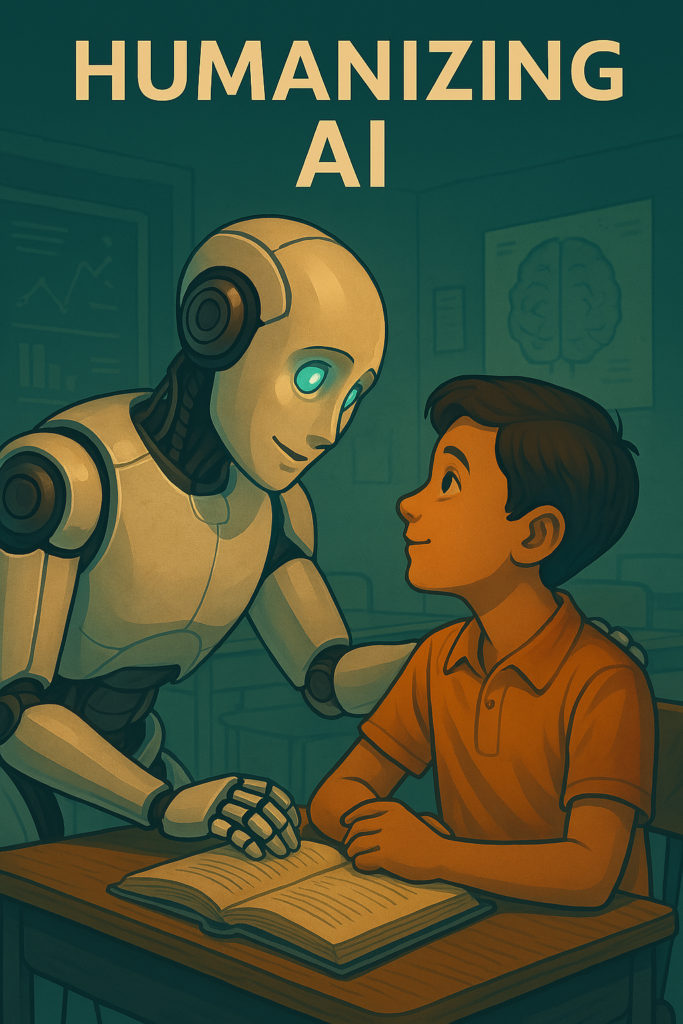In the heart of Kerala’s Malappuram district, a groundbreaking innovation is reshaping the educational landscape. Meet Akmirra, an AI-powered humanoid robot teacher capable of teaching in 51 languages and understanding student emotions. Deployed at AKM Higher Secondary School in Kottakkal, Akmirra represents a fusion of technology and education, aiming to create a more interactive and empathetic learning environment. Times of India
The Genesis of Akmirra
Akmirra, an acronym for Advanced Knowledge-Based Machine for Intelligent Responsive Robotic Assistance, was developed with the participation of students from the school’s Atal Tinkering Lab, under the guidance of teacher C.S. Sandeep. The robot was officially inaugurated by local dignitaries, marking a significant milestone in integrating AI into classrooms. @mathrubhumi
Multilingual Capabilities: Breaking Language Barriers
One of Akmirra’s most impressive features is its ability to communicate fluently in 51 languages, including regional dialects and classical languages like Sanskrit. This multilingual proficiency ensures that students from diverse linguistic backgrounds can engage with the robot, making education more inclusive and accessible. mathrubhumi
Emotional Intelligence: A Step Towards Empathetic Teaching

Beyond linguistic capabilities, Akmirra is equipped with advanced sensors and algorithms that allow it to detect and respond to emotions. By analyzing facial expressions and vocal tones, the robot can adapt its teaching methods to suit the emotional state of each student. This will foster a more supportive and responsive learning environment. @mathrubhumi
Autonomous Learning and Real-Time Content Delivery
Akmirra’s AI-driven system enables it to autonomously gather information from the internet and its surroundings, create and deliver real-time content. This dynamic approach ensures that the robot’s teaching material is always up-to-date and relevant. It is also catering to the evolving educational needs of students. @mathrubhumi
Integration into the Classroom: Enhancing the Learning Experience
Incorporating Akmirra into the classroom has transformed the traditional teaching model. Students interact with the robot through voice commands and touch interfaces, receiving instant responses to their queries. The robot’s ability to understand and adapt to individual learning styles has led to increased engagement and improved academic performance.
Challenges and Considerations
While Akmirra’s introduction marks a significant advancement, it also presents challenges:
- Technical Maintenance: Ensuring the robot’s hardware and software are consistently updated and functional requires ongoing technical support.
- Teacher Training: Educators need training to effectively integrate Akmirra into their teaching methods and address any technical issues that arise.
- Ethical Concerns: The use of AI in education raises questions about data privacy and the extent to which machines should be involved in teaching.
The Future of AI in Education
Akmirra’s success could pave the way for broader adoption of AI in education across India and beyond. By addressing language barriers and providing personalized, emotionally intelligent instruction, AI-powered robots like Akmirra have the potential to revolutionize the educational landscape. This will make learning more accessible and effective for students worldwide.
Conclusion: Embracing Technological Innovation
Akmirra stands as a testament to the transformative power of technology in education. By combining multilingual communication, emotional intelligence, and autonomous learning, this AI robot teacher offers a glimpse into the future of education—one where technology and human empathy work hand in hand. This will enhance the learning experience.









+ There are no comments
Add yours